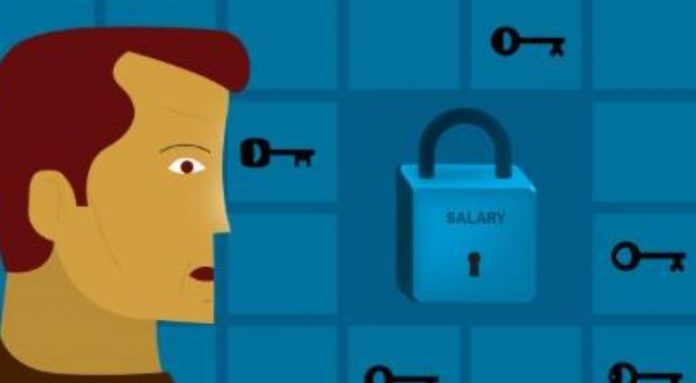The Abu Dhabi resident, who works offshore, is now surviving on a credit card from another lender
I took out a loan in 2015 for a housing project in my home country of Nigeria, which I topped up a couple of times until the outstanding balance was Dh360,000. I work in the energy sector and in December 2016, I lost my job when there was a crash in the price of crude oil.
I was unemployed in 2017 and 2018 but managed to stay in the UAE to look for a job. Fortunately, my company agreed not to cancel my visa to give me time to find another role. I survived by borrowing from friends and family back home and I am still repaying them.
During that period I paid Dh66,680 back on the loan – this was two instalments plus my gratuity payment. After that I paid Dh8,500 a month.
Last year, after getting a job with an employer in Abu Dhabi, I approached my lender for a loan settlement. At the time I still owed Dh222,000 and I wanted to resolve a police case against me over the debt that had led to a travel ban. The bank demanded Dh20,000, which would be deducted from the balance and ensure the removal of the police case. I raised this money from friends and paid the Dh20,000 on March 5 last year. The same day a bank representative demanded I write a cheque for Dh202,000 against the outstanding loan. They also demanded 50 per cent of my salary every month to clear the debt.
I asked the bank for more details about the agreement, such as the loan tenure and interest rate, but was told they would send details once my account was ‘normalised’.
After receiving my first salary from my new job, I discovered I could not withdraw any money from the ATM because the account was blocked. When I challenged the bank they said ‘this is our policy’. After my second month’s salary was paid, I asked again for the loan details. The bank replied and had added an additional Dh33,000 to the Dh202,000 I already owed.
I currently owe Dh95,093 on the loan, but I still cannot access my account. Every month, 50 per cent of my income pays off the debt. My only option is to visit the bank’s collection department branch every month to withdraw money. I have raised several complaints to customer care but nothing has been done. However, I have now been working offshore I Saudi Arabia since January 3 and cannot access my money at all. I cannot return to the UAE due to Covid-19.
My wife and three children live in our home in Abu Dhabi. My wife survives by using a credit card I have with another bank. The outstanding balance on that card is Dh14,000. The card has a limit of Dh30,000 and I pay off Dh4,000 a month. I also have a current account with that bank and wrote out four cheques to my landlord for the Dh40,000 annual rent. In April, one of the quarterly cheques bounced.
I earn a daily rate of Dh700, which equates to about Dh21,000 a month. My other expenses include Dh300 for utilities, Dh300 for TV and phone, Dh1,000 for groceries and Dh10,000 a month in remittances.
My bank account is still blocked and I have raised two complaints with the Central Bank of the UAE. How do I get access to my salary? SO, Abu Dhabi
Debt panellist 1: Philip King, head of retail banking at Abu Dhabi Islamic Bank
Transparency and clear communication between the lender and borrower are vital, however, many borrowers remain unaware of the terms and conditions of their loan contracts. You have taken the appropriate step by consistently enquiring about the details.
What a bank is permitted to do regarding your debt repayments is outlined in the loan agreement. Some banks tend to add clauses in their contracts to prevent absconders, including freezing your bank account. Therefore, you must gain full clarity from your lender on your rights and obligations. Also, ensure they have documentary evidence of your employment, including copies of your residency visa and job contract, and ask the bank’s collection department if they need other documentation that can help lift the suspension of your account.
In your communications with the bank, you must explain your situation, highlighting your movement restriction and strain on your household’s finances. During these challenging times, banks are encouraged to be flexible and accommodating, therefore you may be able to benefit from temporary exemptions and financial relief measures. Ideally, work towards reaching a mutually agreed on realistic loan settlement and repayment plan.
You have come so far in reducing your outstanding balance by threefold, however, this progress might be hampered by having a credit card debt on top of your existing loan. You and your wife may need to think of ways to shore up your household income and consider reducing your expenses including remittances.
Debt panellist 2: Ambareen Musa, founder and chief executive of Souqalmal.com
Your restructured loan arrangement has left you in a tight financial spot. The bank imposed strict conditions under which your loan was ‘normalised’, which basically means the ‘default’ status was amended and the repayment schedule was regularised.
Write to your bank and ask them to deduct the loan instalment from your salary as soon as it is credited into your account, and leave the remaining amount unblocked and fully accessible for you? Since you are able to withdraw money by visiting the bank’s collection department, there should be no restriction on the withdrawal. It appears the bank is making it difficult for you to access your money.
Tell the bank you are now unable to visit the branch physically since you have to work offshore for long periods, and ask to have the current cash withdrawal protocol amended.
If you don’t make any headway, enlist a legal representative to help negotiate the terms of your existing debt. Since you’re already facing a cash crunch, you could look into accessing free legal aid through some of the options available in the UAE. Both Dubai Courts and the Abu Dhabi Judicial Department, offer free legal consultation services to individuals who cannot afford legal and judicial fees.
Another option is to get in touch with the Pro Bono Clinic run and managed by the DIFC Academy of Law. This programme is available to those who cannot afford legal assistance. You can simply walk into any of the four weekly pro bono clinics and discuss your case with a legal expert. To find out more, write to pro.bono@difccourts.ae.
Also, reach out to your country’s consulate/embassy in the UAE to seek legal advice on how best to tackle your outstanding debt and deadlock with the bank.
You mentioned using the money to buy a house back home. Since you are struggling to manage your debt in the UAE, would you consider selling that property and using the funds to settle your debts here? It’s definitely a difficult decision, but can help you get rid of this cycle of mounting debt.
Debt panellist 3: Stuart Ritchie, chartered financial planner at AES International
The central bank permits banks to freeze accounts for various reasons, such as when an individual loses their job, or upon receiving an individual’s end-of-service gratuity payment. Unfortunately, the only way to have a bank account unfrozen is to submit proof that you have secured new employment, by providing a salary letter from your new employer, or by paying off any outstanding debts.
However, you are employed and actively repaying your loan, so the bank should not have grounds to keep your account frozen. With your bank unresponsive, you don’t have much choice but to keep complaining to the central bank. A complaint can be registered:
1. Online through the complaint form on the central bank’s website
2. By faxing the complaint to +971 2 6916004
3. In person at a central bank’s branch in Dubai, Sharjah, Al Ain, Ras al Khaimah or Fujairah
Also, contact the central bank’s Consumer Protection Department on 800 CBUAE (800 22823) to register a complaint. They will walk you through the process and answer any questions.
Make sure you submit copies of statements, receipts and related paperwork required to support your claim. This helps the Central Bank assess your situation more efficiently. It is also necessary to produce documents verifying you have taken up the matter with the concerned organisation previously.
Once the complaint has been filed, a reference number will be generated, which you must quote to monitor the status of your complaint. You will be notified via phone, email or SMS when a decision has been reached.
From a financial planning perspective, your income vastly outweighs your costs, so there is no issue of surplus income. I suggest pausing the remittances until your liabilities have been taken care of. Additionally, loans tend to have lower interest rates than credit card debt, so consider taking out another structured loan with your new bank instead of racking up credit card debt, as this will be less expensive in the long run. The obvious downside to this is the bad experience you’ve had in the past with loans, and the potential that your credit score will be quite low as a result, meaning the new bank might be reluctant to approve additional debt.
Another step to consider is redirecting your salary to your second checking account, where you don’t have an outstanding loan, effectively relinquishing your original bank of that power to take the entirety of your salary each month. However, speak to a lawyer before taking this step to verify the legality of it.




